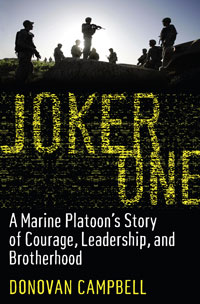 “Joker One: A Marine Platoon’s Story of Courage, Leadership, and Brotherhood,” left me in tears. It really did.
“Joker One: A Marine Platoon’s Story of Courage, Leadership, and Brotherhood,” left me in tears. It really did.
Donovan Campbell led the platoon called Joker One during five months in 2004 in Ramadi, a major city in Iraq’s Anbar Province. When they arrived in March 2004, a year after the invasion, things were dangerous, yet fairly calm. But the insurgency exploded in April and continued until Joker One left in September…and it then continued for a couple more years. Their battalion took more casualties than any battalion–Marine or Army–since Vietnam.
The book’s subtitle says it well: a story of courage, leadership, and brotherhood.
I was initially conscious of the leadership part–Campbell’s leadership, starting in the States with pre-deployment training. He led by example, with strength, and with sensitivity. I realized that he would make a good pastor; in many ways, he was a shepherd for his men. And it was servant leadership. He was there to serve and protect his men. That theme prevailed throughout the book.
The first 150 pages take place in the States and in the early days of their time in Ramadi. Then, with the section titled “Fierce,” come 150 pages of regular combat. You see the grind of daily fighting take its toll on the men, and on Campbell. You also see the professionalism, strength, competence, morality, and awesome firepower of the American soldier.
There is nothing flashy about Campbell’s writing. But he communicates with authenticity. He clearly acknowledges his own failings, and doesn’t dwell on the things he does well. He earned a Bronze Star with Valor, but he never mentions it in the book.
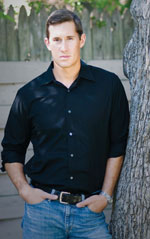 Campbell (left) throws some deserved barbs at Paul Bremer, the civilian leader whose decisions caused so much havoc in Iraq. During the summer of battle, with friends dying around him, he muses about people in the States obliviously heading out on their vacations. In August, “America focused on something totally incomprehensible to us–the 2004 Summer Olympics.” It shows how much the war had been removed from our minds.
Campbell (left) throws some deserved barbs at Paul Bremer, the civilian leader whose decisions caused so much havoc in Iraq. During the summer of battle, with friends dying around him, he muses about people in the States obliviously heading out on their vacations. In August, “America focused on something totally incomprehensible to us–the 2004 Summer Olympics.” It shows how much the war had been removed from our minds.
Campbell muses occasionally on spiritual subjects, and in evangelical terminology, though he never explicitly identifies himself as a Christian or even as a man of faith. I found that most interesting.
Near the end, in chapter 37, he talks in biblical language about love and sacrifice. It’s an amazing chapter–my favorite, the one that choked me up–as he reflects on Joker One.
“For me, then, loving Joke One–something I so desperately hoped that I did–meant much more than simply feeling that I cared. It meant patience when explaining something for the fifth time to a 19-year-old who just didn’t get it. It meant kindness when dealing with a Marine who had made an honest mistake while trying his hardest; mercy when deciding the appropriate punishment. It meant dispensing justice and then forgetting that it had been dispensed, punishing wrong and then wiping the slate clean.
“Love was joy at the growth of my men, even when it diminished my own authority. It was giving the credit for our successes to the team while assuming all the responsibility for our failures on myself. It was constantly teaching my men, sharing everything with them until I had nothing left to give, with the expectation and the hope that they would become greater then me. It was making myself less so that they might become more. Love accepted the Marines for exactly who they were and never believed that it was all they would be….
“So that was how we loved those who hated us; blessed those who persecuted us; daily laid down our lives for our neighbors….Now I understand more about what it means to truly love, and what it means to love your neighbor–how you can do it even when your neighbor literally tries to kill you.” He mentions Bolding, a Marine killed while trying to protect some Iraqi children. “Bolding had lived out the greater-love principle to its fullest possible extent.”
Campbell writes in the tradition of the soldier-poet, rather than of the foul-mouthed sergeant telling it like it is. He’s authentic and introspective, and I felt I truly learned a lot about the American soldier.
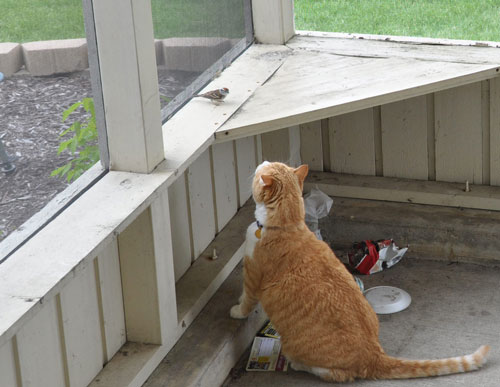
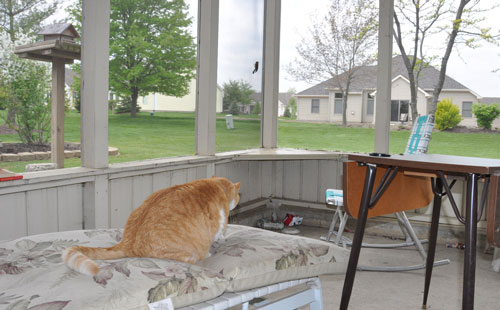


 Belinda Luscome wrote this tremendous (and very funny) column in the May 3 edition of Time magazine, called “
Belinda Luscome wrote this tremendous (and very funny) column in the May 3 edition of Time magazine, called “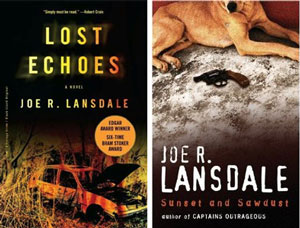 Joe Lansdale is quickly becoming one of my favorite authors. He excels at developing memorable characters, and his plots are unusual.
Joe Lansdale is quickly becoming one of my favorite authors. He excels at developing memorable characters, and his plots are unusual.
 Henning Mankell’s nine-book series about Chief Inspector Kurt Wallander begins in January 1990. Wallander is 42, divorced, a father, and has risen through the police ranks. He started out in Malmo, then transferred to the smaller city of Ystad, where all of the Wallander books occur. So there’s a lot we don’t know about Wallander.
Henning Mankell’s nine-book series about Chief Inspector Kurt Wallander begins in January 1990. Wallander is 42, divorced, a father, and has risen through the police ranks. He started out in Malmo, then transferred to the smaller city of Ystad, where all of the Wallander books occur. So there’s a lot we don’t know about Wallander.
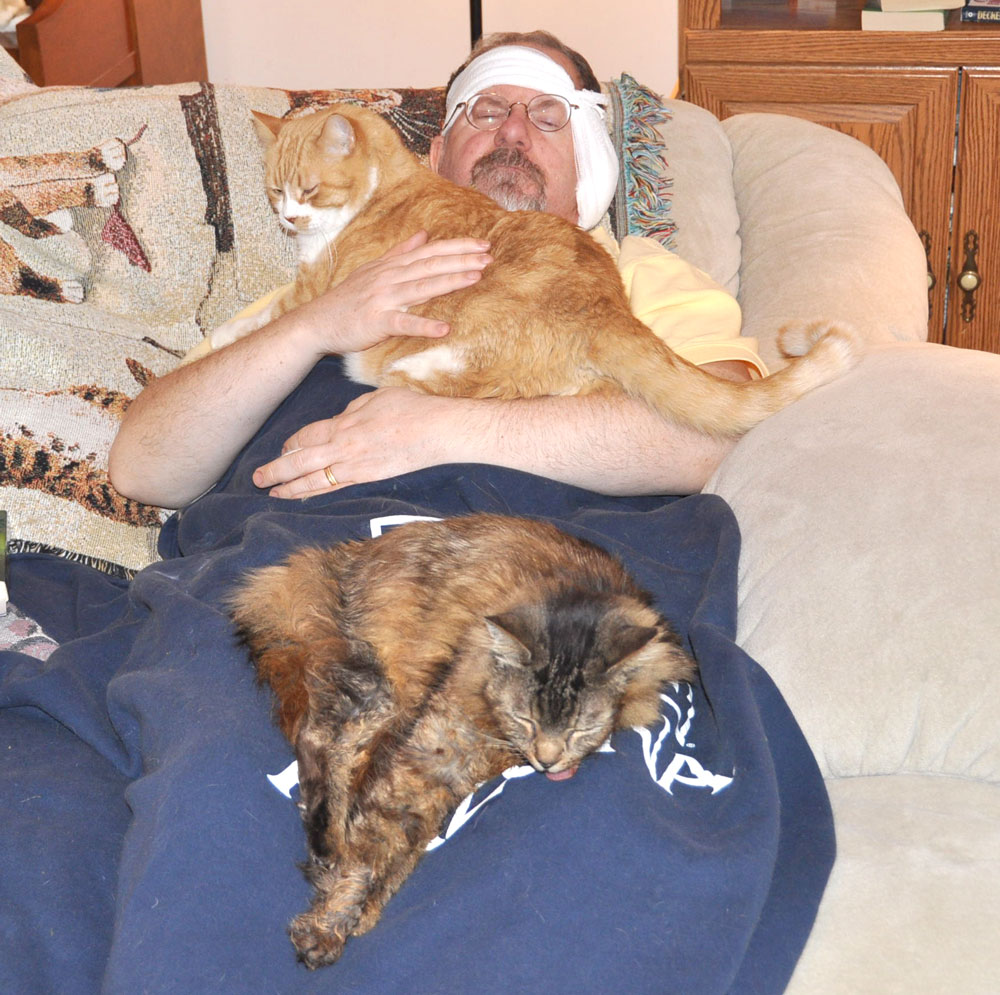
 “Joker One: A Marine Platoon’s Story of Courage, Leadership, and Brotherhood,” left me in tears. It really did.
“Joker One: A Marine Platoon’s Story of Courage, Leadership, and Brotherhood,” left me in tears. It really did.  Campbell (left) throws some deserved barbs at Paul Bremer, the civilian leader whose decisions caused so much havoc in Iraq. During the summer of battle, with friends dying around him, he muses about people in the States obliviously heading out on their vacations. In August, “America focused on something totally incomprehensible to us–the 2004 Summer Olympics.” It shows how much the war had been removed from our minds.
Campbell (left) throws some deserved barbs at Paul Bremer, the civilian leader whose decisions caused so much havoc in Iraq. During the summer of battle, with friends dying around him, he muses about people in the States obliviously heading out on their vacations. In August, “America focused on something totally incomprehensible to us–the 2004 Summer Olympics.” It shows how much the war had been removed from our minds. MSNBC is back on XM Satellite Radio, finally! I used to listen to it all the time going to work, when Don Imus hosted the morning show. Everybody who was anybody in politics clamored to be on his show. He made them put away the talking points and give honest opinions, and they complied (or were blacklisted by Imus). I loved it. It was the most enlightening, and fun, political show on TV or radio (though Imus constantly strayed over “the line”).
MSNBC is back on XM Satellite Radio, finally! I used to listen to it all the time going to work, when Don Imus hosted the morning show. Everybody who was anybody in politics clamored to be on his show. He made them put away the talking points and give honest opinions, and they complied (or were blacklisted by Imus). I loved it. It was the most enlightening, and fun, political show on TV or radio (though Imus constantly strayed over “the line”).


